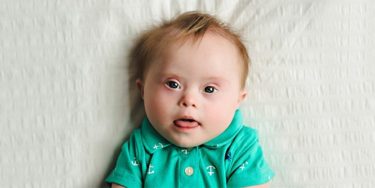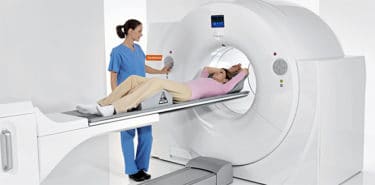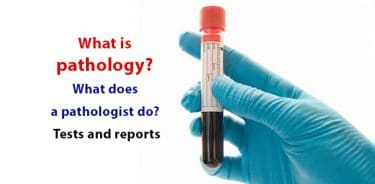 Down syndrome is a genetic difference that occurs as a result of extra chromosome replication in one of the chromosome pairs. However, the reason for the formation of this extra chromosome is not yet clear. There is no complete treatment of Down syndrome, which can be detected during pregnancy or postnatal tests. However, getting a training and integrative treatment methods are very important for individuals who develop the syndrome to have an independent and quality life. A child with Down syndrome can continue as a social, successful, professional and happy adult with an integrative treatment from a young age.
Down syndrome is a genetic difference that occurs as a result of extra chromosome replication in one of the chromosome pairs. However, the reason for the formation of this extra chromosome is not yet clear. There is no complete treatment of Down syndrome, which can be detected during pregnancy or postnatal tests. However, getting a training and integrative treatment methods are very important for individuals who develop the syndrome to have an independent and quality life. A child with Down syndrome can continue as a social, successful, professional and happy adult with an integrative treatment from a young age.
Table of Contents
What is Down syndrome?
People are born with 46 in total, 23 chromosomes taken from each of their parents. In some cases, however, an extra copy of one of the chromosomes in chromosome 21st pair is produced. As a result, some individuals have 47 chromosomes instead of 46, which is called Down syndrome. It is named after Doctor John Langdon Down, who systematically described and classified this condition. Down syndrome is not a disorder or disease. It’s a genetic condition.
What is chromosome?
The units that determine the genetic characteristics of living things are called chromosomes. Chromosomes are filamentous structures formed by DNAs wrapping around proteins. The transmission of various traits and genes from parents to children is ensured by chromosomes. During reproduction, 23 chromosomes come from the mother’s and father’s reproductive cells. Usually 46 chromosomes exist in human beings.
Types of Down syndrome
- Trisomy 21: It is the most common type of Down’s syndrome that constitutes 95% of the cases. In this type, the chromosome pair 21st has an extra chromosome.
- Translocation: It constitutes 4% of all Down syndrome cases. In translocation, a part of chromosome 21 breaks during cell division and adheres to another chromosome (usually chromosome 14). While the total number of chromosomes in the cells remains 46, the extra part of the chromosome 21 causes Down syndrome.
- Mosaic Down syndrome: This type is seen in only 1% of cases, it is a chromosomal excess in the 21st chromosome pair (Trisomy 21) seen in some of the cells, but not in all. The higher the ratio, the more pronounced characteristics of Down syndrome are.
Causes of Down syndrome
Although the exact cause is not yet known, one of the most important risk factors for Down syndrome is pregnancy at an advanced age. Generally, the risk increases in births after the age of 35 years.

Some studies have shown that paternity may also be important and that the prospective fathers over 40 years of age have a higher risk of having children with Down’s syndrome than younger fathers. Another risk factor is having a child with Down syndrome.
If you have a child with Down’s syndrome and you plan to have another child, it is recommended that you seek a genetic test for a possible risk of translocation.
Is Down syndrome genetic?
It is usually not hereditary, which means that it does not pass from parents to children. Nevertheless, some researchers state that if one of the parents has Down’s syndrome, the child is at high risk of developing the syndrome. In Trisomy 21 and Mosaic Down’s syndrome, the extra chromosome copy is generated by a random genetic change and is not genetically transmitted. However, translocation can be inherited.
The mother or father who does not have this syndrome may carry an extra part between chromosome 21 and another chromosome, which is called balanced translocation. If this extra piece passes from parents to the child during reproduction, the balance in the translocation may be impaired and the child develops Down’s syndrome. Only 3% or 4% of individuals with Down syndrome develop the syndrome due to translocation.
Symptoms of Down syndrome
- Small and flat head structure
- Short and wide neck
- Little hands and feet, plump fingers
- Loose muscle structure
- Heart, digestive or immune system problems
- Poor hearing or vision
- Retardation in intelligence
- Difficulty in learning skills such as sitting, walking, speaking
There are also developmental delays and medical problems.
Diseases seen in Down syndrome
- Congenital heart problems: About half of children with this syndrome are born with heart problems. These problems can sometimes be life-threatening and require surgery at an early age.
- Digestive system problems: Some people with Down’s syndrome have digestive system problems. These problems can affect the stomach, intestine, esophagus and trachea. In addition, the risk of constipation, reflux or celiac disease increases.
- Immune system problems: Due to problems in the immune system, autoimmune diseases can occur in which the immune system attacks the body’s own cells. In addition, some types of cancer and the risk of infections increase.
- Problems with the spine: Some individuals with this syndrome may have a misalignment of the top two vertebrae. This leads to problems with the spine, as it can overload the neck.
In addition, medical problems as follows can be seen:
- Hearing or vision loss,
- Cataract,
- Hip problems,
- Sleep apnea,
- Obesity,
- Dementia,
- Thyroid problems
Developmental delays in Down syndrome
It may cause some developmental delays, as well. Children may learn skills such as sitting, speaking, walking later. They may develop physically late, for example, problems in teeth development can lead to chewing problems.
In some cases, children with Down syndrome may also have autism or attention deficit and hyperactivity disorder. Retardation in intelligence may also occur in individuals with Down syndrome. The level of this retardation may vary from person to person.
Diagnosis of Down syndrome
Down syndrome test during pregnancy
In pregnancies after 35 years of age, if the baby’s father is 40 years of age or older, or if the family has a history of Down syndrome, the doctor may request an assessment. Screenings during pregnancy:
- First trimester: Ultrasound and blood tests are used to assess the possibility of Down’s syndrome in the fetus. The error rate of these tests is higher than the tests performed later. If the results are not normal, the doctor may perform amniocentesis after 15 weeks.
- Second trimester: Ultrasound and quadruple screening test can help identify Down’s syndrome and other defects in the brain and spinal cord. This test is carried out between 15 and 20 weeks of pregnancy. If any of these tests is not normal, the baby is at high risk of birth defects.
Additional prenatal tests
In some cases, additional tests may be required for the diagnosis. However, since there is a slight risk of miscarriage in these tests, the physician should give detailed information to all parents about the risks and recommend that it be performed only when necessary. These tests are:
- Amniocentesis: The doctor takes a sample of amniotic fluid from the mother’s womb with the help of a needle to look at the baby’s chromosome number. The test is usually performed after the 15th week of pregnancy.
- Chorionic villus sampling (CVS): Your doctor will collect cells from the placenta to analyze chromosomes. This test is conducted between the 9th and 14th weeks of pregnancy. There is 1% risk of miscarriage.
- Fetal blood sampling (PUBS or cordocentesis): The doctor draws blood from the umbilical cord and looks for chromosomal aberration. The risk of miscarriage is higher in this test after the 18th week of pregnancy. Therefore, it is only performed if there is uncertainty in other tests.
Postnatal tests
After birth, the doctor performs a physical examination of the baby, and if the baby has Down’s syndrome, it is usually confirmed. However, in some cases, even if the baby has not developed Down syndrome, it may have physical characteristics of Down syndrome. In such cases, the doctor may recommend a chromosome test called a karyotype.
Treatment of Down syndrome
It cannot be treated because it is not a disease. However, it is possible to intervene in the problems caused by the syndrome with supportive treatment methods and special personal trainings; increase muscle strength and improve motor skills; improve intelligence levels; or support cognitive, emotional and social development.
Research shows that early-onset supportive treatment positively affects outcomes in children with Down syndrome. Support can be started shortly after the birth and continues to be shaped according to the needs of the age. Many different branches have to work together in the supportive treatment of Down syndrome.
Education in Down syndrome
The school is of particular importance for children with Down syndrome. They can catch up with their peers at critical developmental ages, which often apply to their peers, but learn more slowly in the process. An educational institution that understands their special conditions and approaches them patiently and supports them continuously is important for the development of these children.
As they can go to special education centers, they can also seek for supportive education programs such as speech therapy.
Social and mental problems in Down syndrome
Like other people, people with Down syndrome want to live in a safe and healthy environment, communicate, socialize and have a role in society. Unfortunately, for many years, individuals with Down syndrome have been discriminated in the society.
How many years do Down syndrome live?
Average life expectancy for individuals with Down syndrome has increased in recent years. They used to die at a very young age, while the expected life expectancy is now around 60 years old. However, there are many people with Down’s syndrome who survive until the age of 70.
Down syndrome day
Originating from the 3rd chromosome in the 21st chromosome pair, the 21st of March is designated as Down Syndrome Awareness Day to increase awareness about Down syndrome. People are told with the slogan“Just like you, +1 difference”that Down syndrome is not a disease, it is just a genetic difference caused by an extra chromosome.
Recommendations to families for Down syndrome
You may be upset or frightened when you find out that your child has Down’s syndrome. You may not know what life awaits you, and you may worry about your ability to care for your child. The best way to overcome fear and anxiety is to learn and get support. The steps you can take to make life easier for you and your child are as follows:
- Get the right information: You can get the most accurate information about Down syndrome from specialist doctors. They can also help you find ways for your child’s physical and mental development.
- Keep your spirits high: Remember that your child will have a bright future. Most people with Down syndrome can live with their families or independently, socialize, go to college and have a profession. They can be happy and live their lives very satisfying.
- Support groups: You can join support groups to share your experience and benefit from the experiences of others. The Down Syndrome Association offers both informative and supportive trainings for you and develops programs for your child’s development of an independent life.
- Social activities: Support your child’s participation in activities for his/her social development. Even if your child has difficulty adapting at the beginning, activities such as family trips, sports teams or ballet lessons are very important for his/her social development.
- Encourage independence: Encourage your child to do daily chores depending on his/her abilities. He/she can do things like packing lunch, self-cleaning, dressing up, cooking simple dishes and doing laundry.
- School education: Evaluate his/her education options based on your child’s needs. Search for other means of support with special education and act with the school.
- You can contribute to raising awareness and a better future for your children by participating in 21 March Down Syndrome Awareness Day activities.
References: 1- Down's syndrome, 2- Down syndrome, 3- What is Down Syndrome?




